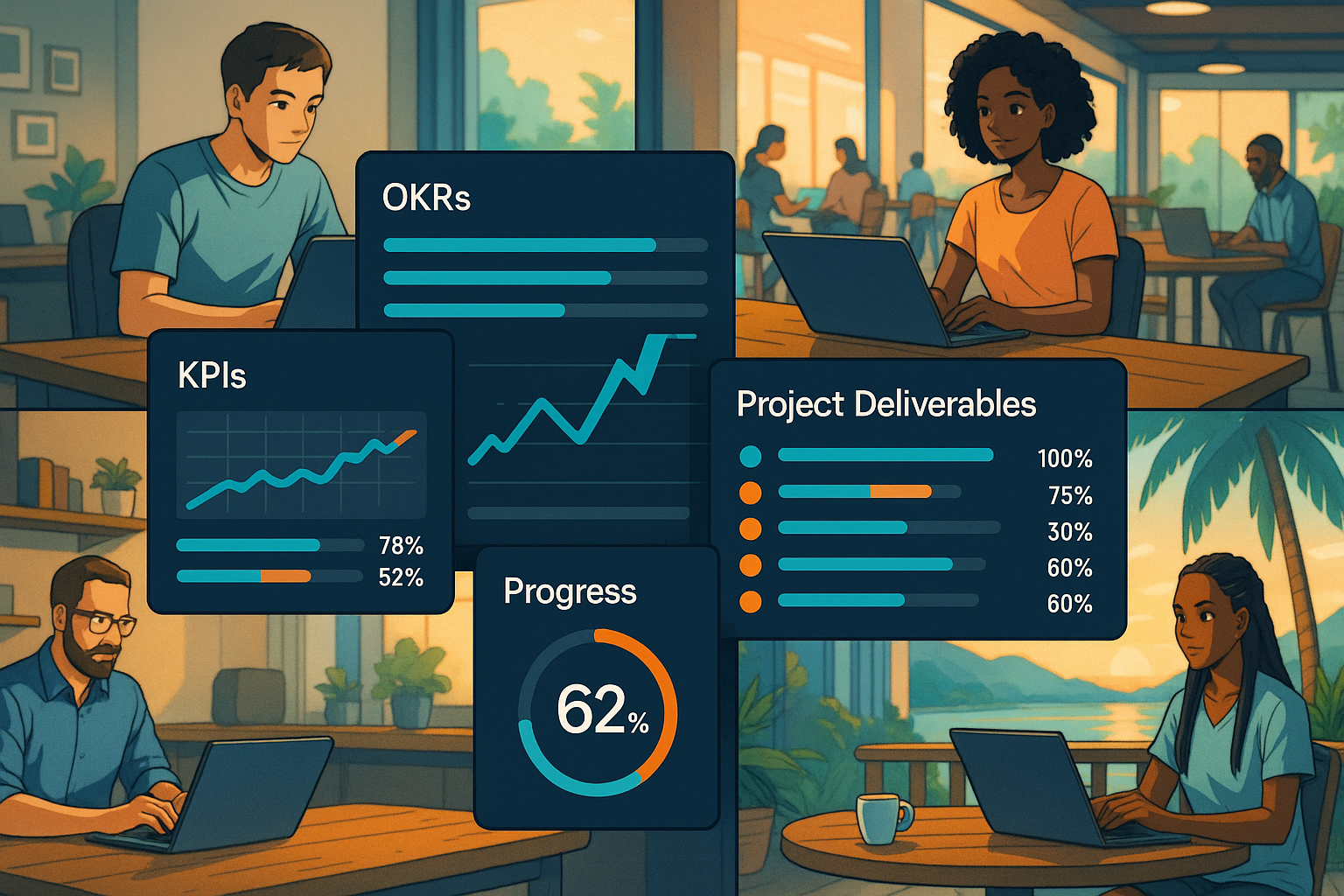Outcome‑Based Performance: Proven Steps for Results-Focused Workflows in 2025
For decades, productivity meant time at a desk. In a remote‑first world, that metric fails. Teams that switch to outcomes see major gains—often double‑digit productivity lifts—while morale and accountability improve. This playbook shows how to make the shift.

ROWE: The Rise of Results‑Oriented Work Environments
Instead of tracking hours online or badge‑ins, Results‑Oriented Work Environments focus on measurable outcomes—what gets shipped. The shift builds trust and autonomy while preserving accountability through clearly defined deliverables.
Step 1: Define Deliverable‑Focused KPIs
- Identify core deliverables for each role or project.
- Break goals into milestones you can track weekly.
- Measure quality and timeliness, not just activity volume.
- Map KPIs to business objectives so impact is obvious.
Step 2: Align Goals with OKRs
Objectives and Key Results (OKRs) create alignment across teams and time zones. Keep objectives inspiring and key results specific, measurable, and time‑bound.
Simple OKR Example
Objective: Expand customer base in South America.
- KR1: Secure 3 new distribution partners by Q2.
- KR2: Increase regional sales by 20%.
- KR3: Launch a localized marketing campaign in Brazil.
Step 3: Use Tools That Track Deliverables (Not Busywork)
- Asana / Trello / ClickUp — task management with deliverables.
- Notion — OKR & KPI dashboards.
- GitHub / GitLab — code reviews and contribution tracking.
- Google Analytics — tie marketing work to outcomes.
- Slack + integrations — keep comms aligned to results.
Case Studies: What Changes When You Measure Results
- Tech Startup: Switching to OKRs cut unnecessary meetings by 30% and lifted productivity by ~25%.
- Remote Agency: Replacing timesheets with deliverable tracking increased output ~40% and improved client satisfaction.
- Freelancer Network: Shared OKRs across time zones halved project delays.
Why Moving Beyond Hours Boosts Productivity
- Accountability: Results are visible and comparable.
- Morale: Autonomy and trust reduce burnout.
- Scalability: Deliverables translate across locations and schedules.
- Client Impact: Outcomes beat timesheets in every review.
Measure what matters: define outcomes, align goals, and let your team choose when and where to do their best work.
Final Thoughts
Outcome‑based performance is a mindset and a system. Start small with one team or one project, prove the gains, and scale. When you optimize for results instead of hours, everyone wins.







